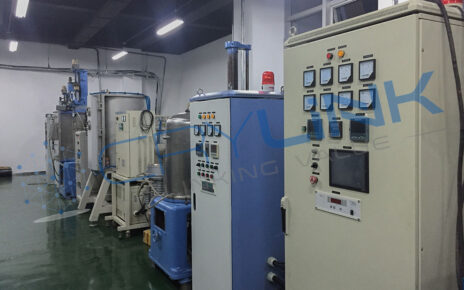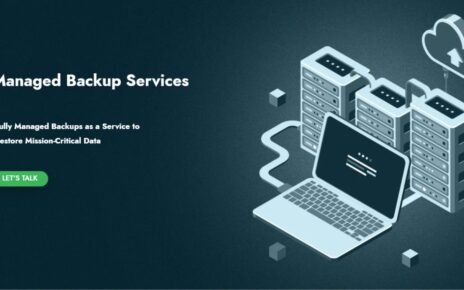In today’s rapidly evolving industrial landscape, manufacturing IT services have become a cornerstone of operational efficiency and innovation. As the fourth industrial revolution, or Industry 4.0, reshapes production paradigms, integrating advanced IT solutions into manufacturing processes is not just an option but a necessity. This article explores the multifaceted role of manufacturing IT services, their impact on productivity and innovation, and the future trajectory of this vital industry segment.
The Evolution of Manufacturing IT Services
The journey of IT services in manufacturing dates back to the late 20th century when automation and computerization began to influence production lines. Initially, the focus was on simple process automation and data management. However, as technology advanced, so did the scope of IT services. Today, they encompass a wide array of solutions including cloud computing, the Internet of Things (IoT), artificial intelligence (AI), big data analytics, and cybersecurity.
Early Automation and Data Management
In the early stages, manufacturing IT services were primarily concerned with automating repetitive tasks and managing data more efficiently. Programmable logic controllers (PLCs) and supervisory control and data acquisition (SCADA) systems were among the first to be implemented, streamlining processes and reducing human error.
Integration of Advanced Technologies
The advent of advanced technologies such as IoT and AI has significantly expanded the capabilities of manufacturing IT services. IoT devices collect vast amounts of data from machinery and production lines, which AI systems analyze to optimize operations, predict maintenance needs, and improve product quality. This integration has paved the way for smart factories where machines communicate with each other and make autonomous decisions.
Key Components of Manufacturing IT Services
Modern manufacturing IT services are composed of several key components, each playing a crucial role in enhancing production efficiency and flexibility.
1. Cloud Computing
Cloud computing has revolutionized the way manufacturing companies handle data and applications. By moving to the cloud, manufacturers can scale their IT resources according to demand, reduce infrastructure costs, and improve collaboration across different geographical locations. Cloud-based platforms enable real-time data access and analytics, facilitating quicker decision-making and more agile operations.
2. Internet of Things (IoT)
IoT devices are integral to modern manufacturing IT services. Sensors embedded in machinery and production lines continuously monitor performance, environmental conditions, and product quality. This real-time data collection allows for immediate adjustments, minimizing downtime and reducing waste. IoT also enables predictive maintenance, where potential issues are identified and addressed before they lead to equipment failure.
3. Artificial Intelligence (AI) and Machine Learning (ML)
AI and ML algorithms are transforming manufacturing processes by providing insights that were previously unattainable. These technologies analyze large datasets to uncover patterns and correlations, optimizing everything from supply chain management to production scheduling. AI-powered robots and automation systems enhance precision and efficiency, while machine learning models continuously improve based on new data.
4. Big Data Analytics
The vast amount of data generated by modern manufacturing operations requires sophisticated analytics tools. Big data analytics enables manufacturers to extract valuable insights from this data, driving improvements in product design, production processes, and customer satisfaction. By analyzing trends and anomalies, companies can make informed decisions that enhance productivity and reduce costs.
5. Cybersecurity
With the increasing reliance on digital technologies, cybersecurity has become a critical component of manufacturing IT services. Protecting sensitive data and ensuring the integrity of production systems are paramount. Advanced cybersecurity measures, such as encryption, intrusion detection systems, and secure access protocols, help safeguard against cyber threats and data breaches.
Impact on Productivity and Efficiency
The integration of manufacturing IT services has had a profound impact on productivity and efficiency. By automating routine tasks, optimizing resource utilization, and enhancing decision-making processes, these services contribute to significant operational improvements.
1. Reduced Downtime
Predictive maintenance, enabled by IoT and AI, minimizes equipment downtime by identifying potential issues before they escalate. This proactive approach not only reduces repair costs but also ensures continuous production, enhancing overall efficiency.
2. Enhanced Quality Control
Advanced IT solutions enable real-time monitoring and quality control, ensuring that products meet stringent standards. By analyzing data from various stages of production, manufacturers can quickly identify and rectify defects, reducing waste and improving product quality.
3. Streamlined Supply Chain Management
Manufacturing IT services facilitate better supply chain management by providing end-to-end visibility and enabling efficient coordination between suppliers, manufacturers, and distributors. Real-time tracking and analytics ensure that inventory levels are optimized, reducing the risk of overstocking or stockouts.
4. Improved Decision-Making
The ability to analyze vast amounts of data in real-time empowers manufacturers to make informed decisions quickly. Whether it’s adjusting production schedules, optimizing resource allocation, or responding to market changes, data-driven insights enhance agility and responsiveness.
5. Cost Savings
Automation and optimization lead to significant cost savings in manufacturing operations. By reducing manual labor, minimizing downtime, and improving resource utilization, companies can lower production costs and increase profitability.
Driving Innovation in Manufacturing
Beyond improving existing processes, manufacturing IT services are driving innovation across the industry. By leveraging advanced technologies, manufacturers can explore new business models, develop innovative products, and create more value for customers.
1. Mass Customization
With the help of IT services, manufacturers can offer mass customization, producing tailored products at scale without compromising efficiency. Advanced data analytics and flexible production systems allow for personalized manufacturing, meeting specific customer preferences and enhancing customer satisfaction.
2. Digital Twin Technology
Digital twin technology creates virtual replicas of physical assets, processes, or systems. These digital twins enable manufacturers to simulate and analyze performance in a virtual environment before implementing changes in the real world. This approach reduces risks, accelerates innovation, and improves overall operational efficiency.
3. Smart Manufacturing
Smart manufacturing, driven by IoT, AI, and big data, represents the future of the industry. Connected devices, autonomous systems, and real-time analytics create an intelligent ecosystem where machines and humans collaborate seamlessly. This level of integration enhances productivity, flexibility, and innovation.
4. Sustainable Practices
Manufacturing IT services play a crucial role in promoting sustainability. By optimizing resource utilization, reducing waste, and enabling energy-efficient operations, manufacturers can minimize their environmental footprint. Advanced analytics also support sustainable supply chain management, ensuring ethical sourcing and reducing carbon emissions.
Challenges and Considerations
While the benefits of manufacturing IT services are substantial, there are also challenges and considerations that companies must address to fully leverage these technologies.
1. Integration Complexity
Integrating new IT solutions with existing systems can be complex and requires careful planning. Ensuring compatibility, data interoperability, and seamless communication between different components is essential for successful implementation.
2. Workforce Adaptation
The adoption of advanced IT services necessitates a skilled workforce capable of managing and leveraging these technologies. Companies must invest in training and development programs to equip employees with the necessary skills and knowledge.
3. Cybersecurity Risks
As manufacturing operations become more digitized, the risk of cyber threats increases. Protecting sensitive data and ensuring the integrity of production systems require robust cybersecurity measures and continuous monitoring.
4. Cost and ROI
Implementing manufacturing IT services involves significant upfront costs. Companies must carefully evaluate the return on investment (ROI) and ensure that the benefits outweigh the expenses. Long-term planning and strategic investments are crucial for maximizing value.
5. Regulatory Compliance
Manufacturers must adhere to industry regulations and standards when implementing IT solutions. Ensuring compliance with data protection laws, safety standards, and environmental regulations is essential to avoid legal and financial repercussions.
The Future of Manufacturing IT Services
The future of manufacturing IT services is promising, with continuous advancements in technology set to further transform the industry. Emerging trends such as 5G connectivity, edge computing, and quantum computing will open new possibilities for innovation and efficiency.
1. 5G Connectivity
The rollout of 5G networks will enhance the capabilities of IoT devices, enabling faster and more reliable communication. This ultra-low latency and high-speed connectivity will support real-time data processing, remote monitoring, and advanced automation, further optimizing manufacturing operations.
2. Edge Computing
Edge computing brings data processing closer to the source, reducing latency and bandwidth usage. In manufacturing, edge computing enables real-time analytics and decision-making at the production line level, enhancing responsiveness and operational efficiency.
3. Quantum Computing
Quantum computing has the potential to revolutionize manufacturing by solving complex optimization problems and simulating intricate processes. Although still in its early stages, quantum computing could unlock unprecedented capabilities in areas such as material science, logistics, and predictive analytics.
4. Human-Machine Collaboration
The future of manufacturing will see increased collaboration between humans and machines. Advanced robotics, AI-powered assistants, and augmented reality (AR) technologies will enhance human capabilities, improving productivity and safety on the factory floor.
5. Sustainability and Circular Economy
Sustainability will remain a key focus for the manufacturing industry. IT services will play a vital role in supporting circular economy practices, where products are designed for reuse, recycling, and minimal environmental impact. Advanced analytics and blockchain technology will enable transparent and efficient resource management.
Conclusion
Manufacturing IT services are at the heart of the modern industrial revolution, driving efficiency, innovation, and sustainability. By leveraging advanced technologies such as cloud computing, IoT, AI, and big data, manufacturers can optimize operations, enhance product quality, and explore new business models. However, successful implementation requires careful planning, workforce adaptation, and robust cybersecurity measures.
As the industry continues to evolve, the future of manufacturing IT services promises even greater advancements, with emerging technologies opening new possibilities for innovation and growth. Embracing these services will be crucial for manufacturers aiming to stay competitive and thrive in an increasingly digital and interconnected world.




